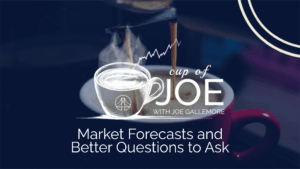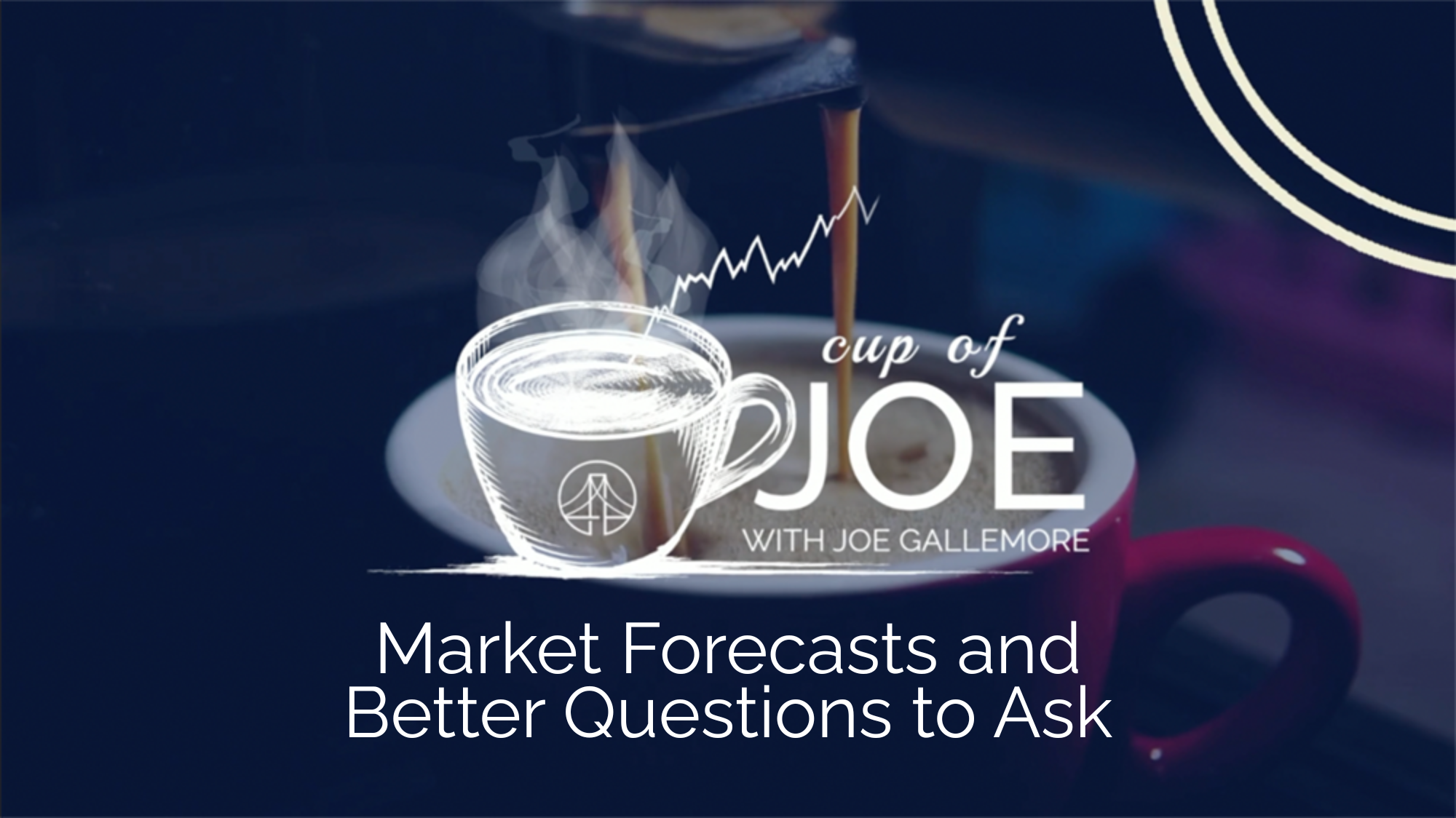Watch November’s Cup of Joe
Get the full breakdown in this month’s video.
Passive vs Active Investment Strategies
- Index funds are simply funds that mimic a pre-defined index. They are rules based.
- The alternative to Index funds is ‘actively managed’ funds. They take a more selective approach, based on quantitative and qualitative factors, usually with a good amount of human judgement involved. They’re usually not rules based and typically hold far fewer stocks then an index.
Pro & Cons
|
|
PROs
|
CONs
|
|---|---|---|
|
Index
|
||
|
1. Cheapest
|
1. All Offense, no defense
|
|
|
2. Nothing beats the Market!
|
2. No Outperformance
|
|
|
|
3. Allocates dollars inefficiently
|
|
|
Active
|
1. Opportunity for Outperformance
|
1. Higher expenses
|
|
2. Can play defense
|
2. Under-performance
|
|
|
3. Can be dynamic
|
|
- Our view is that the Pro’s & Con’s for both have merit and the best strategy is to utilize both.
- Different reasons for different strategies
For Active
- Being defensive
- Focusing on income
- Allowing a fund to be dynamic- Allowing the managers to follow best-ideas
- In bonds funds, allowing managers to be active helps mitigate some of the factors unique to fixed income, such as interest rate risk
For Index
- Pinpoint exposure or Theme investing
- If your goal is broad exposure to as much of the market as possible.
- If your approach is set it, and forget it.
Market Environment
- Active strategies typically work best in markets that aren’t heading linearly up or linearly down; when the market is “trending up” but not at a blistering pace. This usually occurs during the middle or late economic cycle, when activity is slowing down.
- Passive indexes work best in periods of economic acceleration, typically following recession, or when the Fed is in a phase of quantitative easing, when a rising tide seems to raise all boats.
Both have significant advantages to offer and we think using both as compliments to each other leads to the best outcome.

Joe Gallemore CIMA®, CExPTM
Partner & Director of Investment Management




